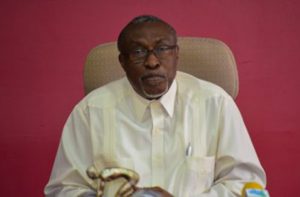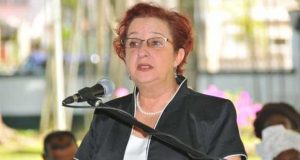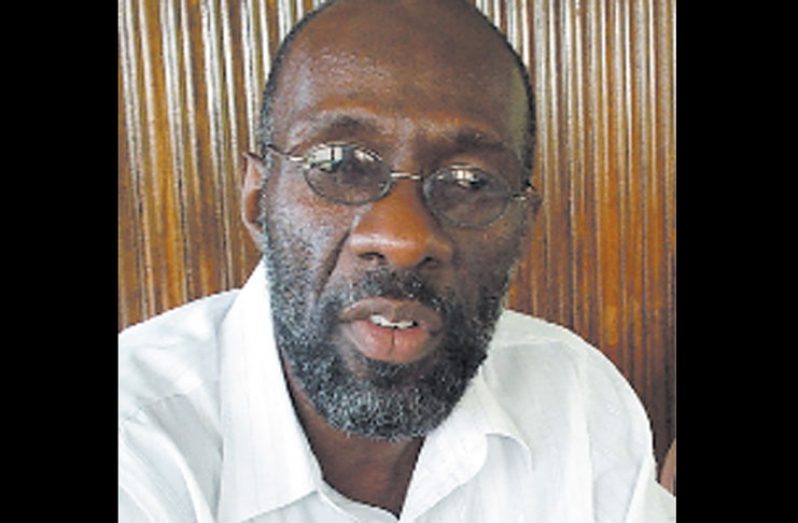…but PPP says Carter formula ‘just fine’
THE Private Sector Commission (PSC) will, in the coming days, examine President David Granger’s position on the need to reform the Guyana Elections Commission (GECOM).
The President, during a recent press conference, told reporters that the Carter Formula, which is in use, has “exhausted its usefulness,” as he made a case for the commissioners to be appointed by the National Assembly.
That formula, which is embedded in the constitution, allows for the opposition leader after consultation with other opposition parliamentary parties, to present the sitting president with a list of nominees from which he may choose one.

In addition to the chairman, the Constitution (Amendment) Act No. 2 of 2000 provides for the appointment of six members of the commission – three members appointed by the President, acting in his own deliberate judgement; and three members appointed by the President acting on the advice of the leader of the opposition after he has meaningfully consulted the non-governmental opposition parties represented in the National Assembly.
According to the President, the formula does not set the stage for consensus, but rather, gridlock. Such was the case when President Granger, last October appointed Retired Judge James Patterson as Chairman of GECOM, after deeming the three lists of nominees submitted by Opposition Leader Bharrat Jagdeo as unacceptable within the meaning of the constitution.
On Wednesday, Chairman of the Private Sector Commission, Desmond Sears, told the Guyana Chronicle that the PSC’s Governance Sub-committee will examine the president’s position when it meets next week. Ahead of that meeting, the chairman said he endorses the move to reform the Elections Commission to allow the chairman and commissioners to be appointed through a parliamentary procedure, contending that “you will always have gridlock” formula remains the same.
Vincent Alexander, a GECOM Commissioner, when approached on the issue, told the Chronicle that “it is clear that the Carter Formula has exhausted its usefulness in some regards.”
While stating that GECOM’s reformation should form part of constitutional reform, Alexander said “we have to ask ourselves whether the country is politically mature to abandon the formula.”
“Outside the formula, there is no guarantee to know what you have,” he posited. In making his point, Alexander opined that in Guyana there are people who appear neutral, but are very often politically aligned. “One has to be careful with abandoning the formula in our present environment,” he warned.

But the PSC Chairman said while there is “hardly” anyone who does not have a political affiliation, one must become impartial when appointed to certain posts such as Chairman of the Elections Commissioner or a commissioner. “Once you have been selected by a president of a political party you should throw down that cap of partisan politics and exercise judgment based on the law, and I think that is a direction [in which] we should go as a country,” Sears said.
While acknowledging that to effect the necessary changes at the Elections Commission would require constitutional reform, the PSC Chairman said the parliamentary process would allow for extensive consultation among the political parties, and for agreement to be reached.
“I would prefer a better system in place, where all parties are in agreement…we need to agree,” he emphasised.
Carter Formula working fine
Meanwhile, the opposition People’s Progressive Party’s Chief Whip Gail Teixeira, like Sears and Alexander, said any changes to the Elections Commission would require constitutional changes. However, Teixeira said the Carter Formula was working just fine up until last year. “We are quite satisfied, as far as I know; we are quite satisfied with the Carter Formula, which has served Guyana…,” she told this newspaper.
For decades now Elections Observer Groups from the Commonwealth, the Carter Center, the Organisation of American States, the Electoral Assistance Bureau, the CARICOM Secretariat, and the Union of South American Nations have been insisting that while GECOM’s purpose for existence is to administer free and fair electoral processes, and while it is recognised that the commission has to be sensitive to and relate to political realities, its independence and impartiality must be protected.
The Carter Center following the 2001 elections had stated: “In advance of future elections, Guyana should consider reforms that would reduce the politicised composition of GECOM and move toward an Electoral Management Body (EMB) with a structure, composition and operations that are more consistent with international good practices and obligations, thus ensuring the independence and impartiality of the EMB.” The centre had made similar observations in the 2006 and 2015 elections. Additionally, the Commonwealth Secretariat on the same issue had recommended that “strong consideration should be given to ending the practice of having political appointees as members of GECOM.”
The Commonwealth had said that the present formula compromises the effectiveness and integrity of the commission, which needs to be independent and above partisan politics at all levels.



.jpg)








